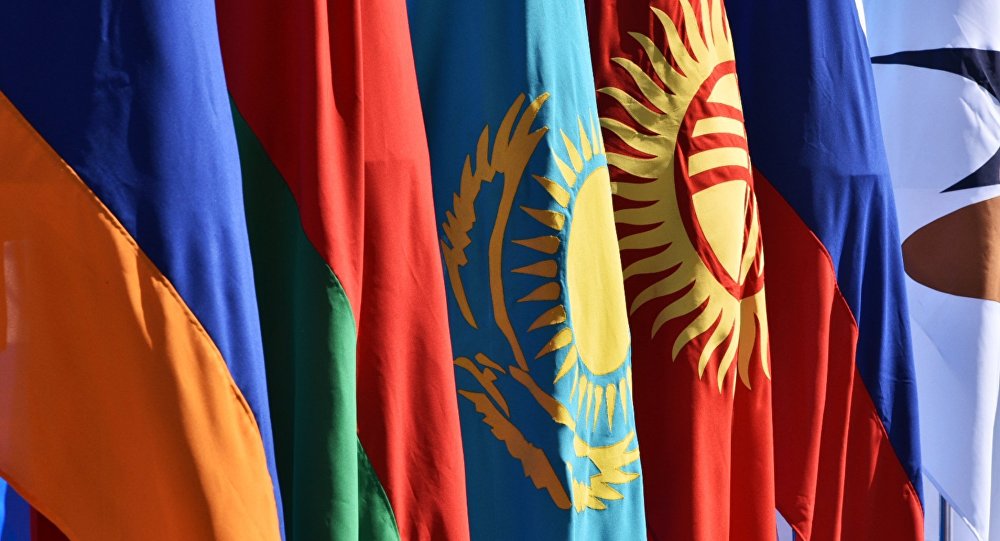


ArmInfo. On March 17, a meeting of the Council of the Eurasian Economic Commission (EEC) was held in Moscow. Solutions to ensure consumer safety and the effectiveness of phytosanitary control in the countries of the Eurasian Economic Union (EEU) are approved. The Chairman of the Council of EEC, Vice Prime Minister of the Kyrgyz Republic Oleg Pankratov drew attention to the importance of decisions taken by the Council. "In the modern world, norms and rules of technical regulation are designed to ensure the safety of goods for consumers, improve production efficiency and reduce costs for business", said Oleg Pankratov. "It is important for us to develop uniform approaches common to the countries of the Union for determining the conformity of goods and services to the standards of the Union". The EEC Council approved the zeroing of the import duty on ether alcohols and their derivatives, widely used in footwear production. According to the estimates of the Russian Union of Leatherworkers and Shoemakers, this measure should allow cutting the expenses of the enterprises of the industry by USD 735.3 thousand per year and increase the profitability of production by 13% compared to the current level (from 2.8% to 3.16%). Inclusion in the technical regulations of the EEU "On the safety of toys" a number of new provisions, including those aimed at ensuring the safety of products that have magnetic elements. In particular, the sale and distribution of toys with loose super-strong magnets of small size are prohibited. This will reduce the threat to the health of children, as it will eliminate the possibility of swallowing them. Elimination of a number of duplicative norms in the sphere of quarantine phytosanitary control carried out when the quarantine products are imported into the EEU and when it is moved between the Member States. This decision will help to remove unreasonable administrative barriers to trade and reduce conflict situations during quarantine phytosanitary control.
Amendments to the technical regulations "On the s and products based on them". The period of the commencement of the norm providing the marking of explosives was postponed to January 1, 2021. The regulation regulates the circulation of explosives used in the coal, oil, gas and a number of other industries in the EEU countries. Article 4, paragraph 1, of the technical regulation provides the introduction into the explosives of marking substances on which the country code of the country of manufacture, type of product, manufacturer, manufactured lot and date of manufacture are affixed. Concerning the decision on zeroing of import duties on ether alcohols and their derivatives, member of the Board (Minister) for Trade of the EEC Veronika Nikishina noted that this measure will be valid until February 28, 2019 inclusive. "Introduction of a zero rate on import of the specified chemical production will provide support of manufacturers of tanning, leather production and footwear which expenses for purchase of chemistry because of increase in rates of currencies have grown in 2,5 times, informed Veronika Nikishina. "Thus, the zeroing of import duties should allow enterprises to cut costs and offer more competitive prices in the domestic and foreign markets". The Eurasian Economic Commission, a permanent supranational regulatory body of the Eurasian Economic Union, began its work on February 2, 2012. The EEC includes representatives from Armenia, Belarus, Kazakhstan, Kyrgyzstan and Russia. Decisions of the Commission are binding for implementation in the countries of the Union. Chairman of the Board of the Eurasian Economic Commission is Tigran Sargsyan. The treaty on the establishment of the Eurasian Economic Union was signed on May 29, 2014, entered into force on January 1, 2015. The Union ensures the freedom of movement of goods, services, capital and labor, the conduct of a coordinated, coordinated or unified policy in various sectors of the economy. The purpose of the Union is to provide conditions for the stable development of the economies of the member states in the interests of raising the standard of living of their people, comprehensive modernization, cooperation and increasing the competitiveness of national economies. The Supreme Eurasian Economic Council is the supreme body of the Union, which includes the Presidents of Member States. The Eurasian intergovernmental economic council is a body composed of the heads of governments of member states. The Council of the Eurasian Economic Commission is a body composed of vice-premiers of the member states. In accordance with the annual rotation in 2017, the organs of the Union are chaired by Kyrgyzstan. President of the Kyrgyz Republic Almazbek Atambaev is the chairman of the Supreme Eurasian Economic Council.